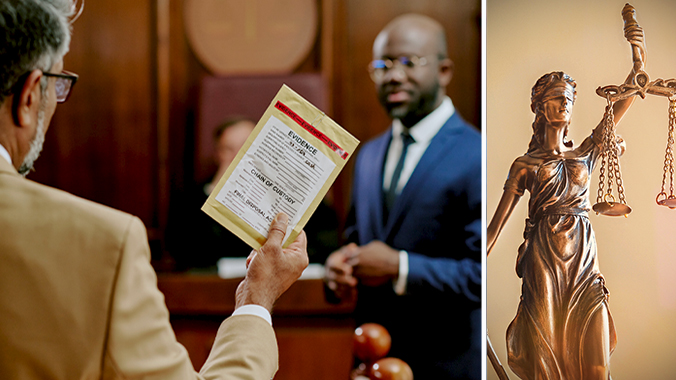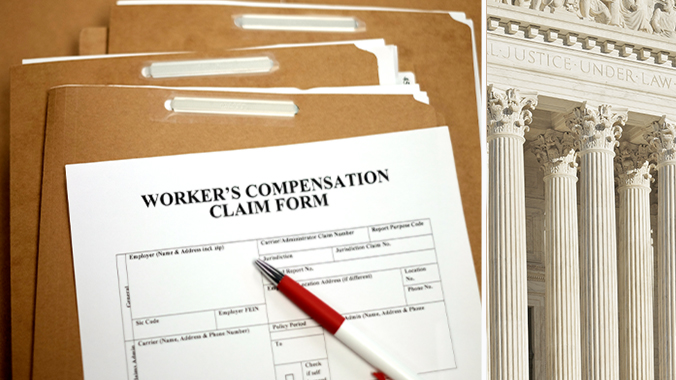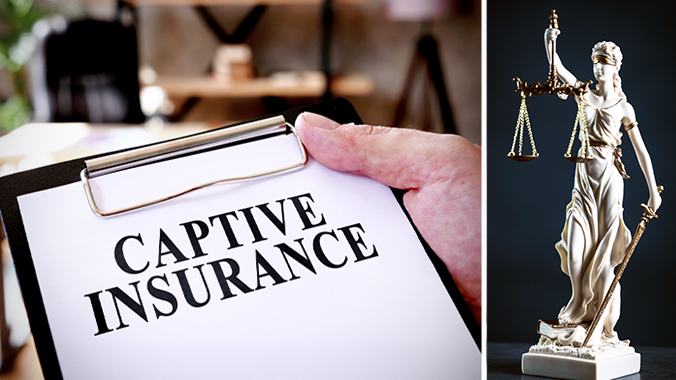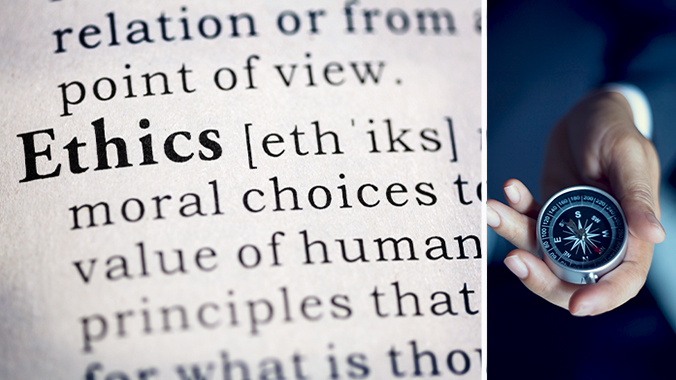Social Welfare Organizations 501(c)(4): Permissible activities, obtaining status, and tax implications

Stephanie Robbins advises the firm’s clients on the complex tax laws and processes that regulate their day-to day activities, as well as state law, corporate law, and governance issues. Ms. Robbins specializes in advising charities on setting up and operating complex corporate structures and the requirements under federal and state law regarding lobbying and political activities.

Gregory Nielsen is a sought-after speaker and Consultant committed to helping leaders and organizations translate vision into reality. His leadership was recognized locally and nationally and honored with awards from the Better Business Bureau for Ethics and the Louisville Urban League for championing diversity.
2 hour CLE
Tuition: $195.00
Get this course, plus over 1,000+ of live webinars.
Learn More
Training 5 or more people?
Sign-up for a law firm subscription plan and each attorney in the firm receives free access to all CLE Programs
Program Summary
Session I - Understanding the Purposes and Tax Implications of Social Welfare Organizations – Stephanie Robbins
In recent years, social welfare organizations described in Section 501(c)(4) of the Internal Revenue Code have received a lot of attention for their ability to influence political campaigns without being required to disclose donors. However, social welfare organizations serve much broader purposes. In the first half of the session, we will focus on the diverse world of social welfare organizations; attendees can expect to learn about the definition and purpose of social welfare organizations, the primary differences between social welfare organizations and charitable organizations described in section 501(c)(3), permissible activities for social welfare organizations, and how to obtain and maintain social welfare status with the Internal Revenue Service. In the second half of the session, we will focus on the tax implications of operating a social welfare organization; attendees can expect to learn about the taxation of unrelated business and political activities conducted by social welfare organizations, as well as the tax implications for persons making contributions to social welfare organizations.
Key topics to be discussed:
- Definition and purpose of social welfare organizations
- Differences between social welfare organizations and charitable organizations 501(c)(3)
- Permissible activities for social welfare organizations
- Tax implications of operating a social welfare organization
Session II - Governance and Operational Best Practices – Gregory Nielsen
This session offers a comprehensive exploration of essential topics crucial for effective governance within 501(c)(4) organizations. Throughout the session, participants will delve into the foundational principles of board governance and fiduciary duties specific to 501(c)(4) organizations. Key areas of focus include elucidating the roles and responsibilities of the board of directors, emphasizing the legal duties incumbent upon board members, such as the duty of care and the duty of loyalty. Attendees will gain invaluable insights into best practices for board governance tailored to the unique needs and operational landscape of 501(c)(4) organizations.
Key topics to be discussed:
- Board governance and fiduciary duties
- Roles and responsibilities of the board of directors
- Legal duties of board members (duty of care, duty of loyalty)
- Best practices for board governance
![]() Closed-captioning available
Closed-captioning available
Speakers
 Stephanie Robbins | Harmon, Curran, Spielberg & Eisenberg LLP
Stephanie Robbins | Harmon, Curran, Spielberg & Eisenberg LLP
Stephanie Robbins is an attorney at Harmon, Curran, Spielberg and Eisenberg. She advises the firm’s clients on the complex tax laws and processes that regulate their day-to day activities, as well as state law, corporate law, and governance issues. Ms. Robbins specializes in advising charities on setting up and operating complex corporate structures and the requirements under federal and state law regarding lobbying and political activities. Ms. Robbins also advises on domestic and international grantmaking, fiscal sponsorship, and other issues unique to charities. She particularly enjoys representing the firm’s clients in tax controversies before the Internal Revenue Service.
Prior to joining Harmon Curran in 2021, Ms. Robbins spent ten years with the IRS. She began in 2011 as a Presidential Management Fellow with an appointment as a tax law specialist in the business unit devoted to tax-exempt and government entities (TE/GE). In this position, Ms. Robbins reviewed complex applications for recognition for various types of charities, including public charities, private foundations, title-holding companies, social welfare organizations, and business leagues. She also authored rulings in response to taxpayer requests, responded to taxpayer correspondence, and served as a subject matter expert for specific types of charities.
In 2014, Ms. Robbins joined the IRS Office of Associate Chief Counsel (Employee Benefits, Exempt Organizations, and Employment Taxes (EEE)) as an Honors Attorney. As an attorney advisor, Ms. Robbins authored significant guidance and letter rulings affecting different types of charities, including hospitals. Ms. Robbins also regularly supported IRS field attorneys with examinations and the Department of Justice with litigation. Ms. Robbins served as a subject matter expert for issues such as unrelated business income earned by charities and the political and lobbying activities of charities.
Before joining the IRS, Ms. Robbins earned Juris Doctor from Temple University in 2011. Ms. Robbins then earned a Master of Laws in Taxation from Georgetown University Law Center in 2013.
 Gregory A. Nielsen | Nielsen Training & Consulting, LLC
Gregory A. Nielsen | Nielsen Training & Consulting, LLC
Gregory Nielsen is a sought-after speaker and Consultant committed to helping leaders and organizations translate vision into reality. He is an accomplished nonprofit CEO, having previously led the Center for Nonprofit Excellence. His leadership was recognized locally and nationally and honored with awards from the Better Business Bureau for Ethics and the Louisville Urban League for championing diversity. Gregory is a military veteran, having previously served as an officer and attorney in the United States Army. He holds a Bachelor of Arts Degree in Government and International Relations from the University of Notre Dame and a Juris Doctorate from Notre Dame Law School.
Agenda
Session I – Understanding the Purposes and Tax Implications of Social Welfare Organizations | 2:00 pm – 3:00 pm
- Definition and purpose of social welfare organizations
- Differences between social welfare organizations and charitable organizations 501(c)(3)
- Permissible activities for social welfare organizations
- Tax implications of operating a social welfare organization
Break | 3:00 pm – 3:10 pm
Session II – Governance and Operational Best Practices | 3:10 pm – 4:10 pm
- Board governance and fiduciary duties
- Roles and responsibilities of the board of directors
- Legal duties of board members (duty of care, duty of loyalty)
- Best practices for board governance
Credits
Alaska
Approved for CLE Credits
2 General
Alabama
Pending CLE Approval
2 General
Arkansas
Approved for CLE Credits
2 General
Arizona
Approved for CLE Credits
2 General
California
Approved for CLE Credits
2 General
Colorado
Pending CLE Approval
2 General
Connecticut
Approved for CLE Credits
2 General
District of Columbia
No MCLE Required
2 General hours
Delaware
Pending CLE Approval
2 General
Florida
Reciprocity
2.5 General Hours
Georgia
Approved for CLE Credits
2 General
Hawaii
Approved for CLE Credits
2 General
Iowa
Pending CLE Approval
2 General
Idaho
Approved for Self-Study Credits
2 General
Illinois
Approved for Self-Study Credits
2 General
Indiana
Approved For On-Demand Credits
2 General
Kansas
Approved for Self-Study Credits
2 Substantive
Kentucky
Pending CLE Approval
2 General
Louisiana
Pending CLE Approval
2 General
Massachusetts
No MCLE Required
2 General hours
Maryland
No MCLE Required
2 General hours
Maine
Pending CLE Approval
2 General
Michigan
No MCLE Required
2 General hours
Minnesota
Approved for Self-Study Credits
2 General
Missouri
Approved for Self-Study Credits
2.4 General
Mississippi
Pending CLE Approval
2 General
Montana
Pending CLE Approval
2 General
North Carolina
Pending CLE Approval
2 General
North Dakota
Approved for CLE Credits
2 General
Nebraska
Pending CLE Approval
2 General
New Hampshire
Approved for CLE Credits
120 General minutes
New Jersey
Approved for CLE Credits
2.4 General
New Mexico
Approved for Self-Study Credits
2 General
Nevada
Approved for Self-Study Credits
2 General
New York
Approved for CLE Credits
2.4 General
Ohio
Pending CLE Approval
2 General
Oklahoma
Approved for Self-Study Credits
2.5 General
Oregon
Approved for Self-Study Credits
2 General
Pennsylvania
Approved for Self-Study Credits
2 General
Rhode Island
Pending CLE Approval
2 General
South Carolina
Pending CLE Approval
2 General
South Dakota
No MCLE Required
2 General hours
Tennessee
Approved for Self-Study Credits
2 General
Texas
Pending CLE Approval
2 General
Utah
Pending CLE Approval
2 General
Virginia
Not Eligible
2 General hours Hours
Vermont
Approved for CLE Credits
2 General
Washington
Approved via Attorney Submission
2 Law and Legal Hours
Wisconsin
Approved for Self-Study Credits
2 General
West Virginia
Pending CLE Approval
2 General
Wyoming
Pending CLE Approval
2 General
#1 CLE Access Program
- Over 1,000 Live CLE Webinars each year
- All CLE webinars broadcasted in last 12 months
- Programs covering over 35 practice areas
- Hot topics & changes in the law
- All formats: Live, Replay, and On-demand
- Accreditation in every state
Access every CLE webinar,
every format, all year long!
myLawCLE All-Access Pass
only $395 yearly
Register Now
#1 CLE Access Program
- Over 1,000 Live CLE Webinars each year
- All CLE webinars broadcasted in last 12 months
- Programs covering over 35 practice areas
- Hot topics & changes in the law
- All formats: Live, Replay, and On-demand
- Accreditation in every state
Access every CLE webinar,
every format, all year long!
myLawCLE All-Access Pass
only $395 yearly
More CLE Webinars
Trending CLE Webinars










Upcoming CLE Webinars





























































